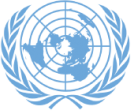Systemic efforts have been in progress in Uzbekistan under the leadership of President Islam Karimov to transform the judicial sphere and liberalize the criminal and criminal-procedural law.
Enhancement of the reforms underway on this front and perfection of the criminal and criminal-procedural law have been discussed at the international conference “Pressing issues in improving the criminal proceedings: Uzbekistan’s experience and international practice”. The forum also served to exchange expertise garnered in the field.
The event was organized by the Supreme Court, the Prosecutor General’s Office and the Ministry of Internal Affairs of the Republic of Uzbekistan jointly with the Project Coordinator of the Organization for Security and Cooperation in Europe (OSCE) in Uzbekistan, the international nongovernmental organization “Regional Dialogue” (Slovenia) and the regional office of the Konrad Adenauer Foundation (Germany). It was attended by deputies of the Legislative Chamber of the Oliy Majlis, judges of the Supreme Court and district courts for criminal cases, officials of the prosecutor’s offices, internal affairs, lawyers, scholars, as well as specialists from such countries as Germany, Denmark, South Korea, Japan, United States, Serbia and France.
It was noted at the conference that under the leadership of President Islam Karimov, systemic works are carried out in Uzbekistan to reform and liberalize the judicial system on democratic basis. Legislative acts passed in this area proved to be an important factor in ensuring the independence of the judiciary and improving the effectiveness of law enforcement agencies in the protection of human rights and freedoms.
Operation of the courts has been perfected, and a solid foundation of legal guarantees of individual rights in criminal proceedings has been instituted. Possibilities of determining punishment types not connected with isolation from society have been expanded. In particular, the composition of many offenses has been reclassified into a category of not representing a great social danger. Reconciliation institution has been introduced to ensure protection of human rights at a high level. As a result of these reforms, the number of those sentenced to imprisonment decreased in 2014 by 16.5 percent compared with figures of the year 2000.
Among important steps in this direction was the establishment of Habeas Corpus institution in our country, that is, issuing sanctions for arrest as a preventive measure was transferred to courts in 2008. The timeliness of adoption of this carefully forethought decision is confirmed today by numerous cases. The introduction of this institution into practice is an important factor in ensuring the protection of constitutional rights and freedoms of the individual and the latter’s sanctity.
In accordance with the Law of the Republic of Uzbekistan “On the introduction of amendments and addenda to some legislative acts of the Republic of Uzbekistan in connection with the intensification of reforms of the judicial system”, passed 18 September 2012, a practice was implemented in the judicial procedure for the application of coercive measures for removal from office, as well as placement of a person in a medical institution. The right to launch a criminal proceeding has been lifted up from the powers of the court. Rules were introduced under which the duty of indictment rests with the prosecutor, creating thus conditions for bolstering the judicial oversight at the stage of preliminary investigation.
The Law “On the introduction of amendments and addenda to some legislative acts of the Republic of Uzbekistan”, adopted 5 September 2014, pioneers a number of amendments and addenda to the Criminal and Criminal Procedure Codes. In particular, the introduction of a new type of preventive measure, namely, the house arrest, into the criminal-procedural law has come to be another important guarantor of the rights and freedoms of citizens.
International experts present at the conference noted that these reforms in Uzbekistan’s judicial system fully comply with universally accepted principles of humanism.
“Uzbekistan has in the years of independence made tangible progress in the judicial sphere, along with accomplishments in other areas,” Dragomir Milojevic, President of the Supreme Court of Cassation of the Republic of Serbia. “By getting familiar with the justice system in Uzbekistan, we came to believe that thanks to wide-ranging reforms this field has been improving at the level of international standards.”
State Attorney of Western lands of the Kingdom of Denmark Ian Reckendorff pointed out that noteworthy is the effective implementation of the Habeas Corpus institution into the judicial sphere of Uzbekistan, and that the enhancement of the range of its application serves for the protection of the rights and freedoms of citizens.
“Every time I come to Uzbekistan, I discover scores of novelties,” the Massachusetts Supreme Court (USA) Justice Robert Cordy has said. “The practical results of reforms in the judicial system are reflected in the peaceful and prosperous life in this nation their confidence in the future.”
According to the judge of the federal state of Berlin and Brandenburg (Germany) Stefan Finkenstein, at the heart of reforms undertaken in Uzbekistan in all areas are human interests. It was revealed during the conference by the example of practical works. Discussion of the ways and means of perfecting the judicial system and the exchange of experience will contribute to the enhancement of scales of such noble endeavors as ensuring human rights.
It was also stressed during the conference that the amendments and addenda to the acting legislation introduced on the basis of the Law “On amendments and additions to some legislative acts of the Republic of Uzbekistan aimed at bolstering the reliable protection of private property, entrepreneurship entities, the removal of barriers for their accelerated development” , which entered into force on 21 August this year, serve for the elimination of hurdles and obstacles to the advancement of entrepreneurship.
“Addition of a new chapter entitled “Crimes associated with the obstruction to and illegal interference with entrepreneurship activities and other crimes that infringe on the rights and legitimate interests of economic entities” to the Criminal Code on the basis of the Decree of the President of the Republic of Uzbekistan “On measures to secure the reliable protection of private property, small business and private entrepreneurship, and remove barriers to their accelerated development”, signed of 15 May 2015, has further strengthened the guarantees of the rights of private property owners,” said Rustam Abdullaev, chairman of the Samarkand Regional Criminal Court. “It provides for inevitability of prosecution for violation of the rules of inspection of business entities and audit of financial and economic activities, illegal freezing of banking operations accounts of entrepreneurs, their forced involvement in sponsorship and other activities, which certainly is an important guarantee of freedom of enterprise. This helps to eliminate barriers and obstacles on the way of entrepreneurship development, to ensure the inevitability of liability of officials of law enforcement, regulatory and other government agencies for obstruction and unlawful intrusion into entrepreneurial activity.
“We have received a lot of useful information about the criminal legislation of Uzbekistan, the processes on the way to improve it,” Choi Hoang Yong, director of the Bureau for Planning and Evaluation at the Korea Legislation Research Institute, has suggested. “I liked especially the norm that envisages the elevation of accountability of public officials for obstruction and illegal interference in the entrepreneurial activity. It is an effective mechanism for the promotion of free development of private property and enterprise, for the protection of the rights and legitimate interests of entrepreneurs. These very factors form the bedrock for an affluent life of the population and, ultimately, for ensuring all of their rights.”
Professor of the Graduate School of Law of Nagoya University Rikiya Kobayama (Japan) stressed that the introduction of a new type of criminal penalty in Uzbekistan in August this year in the form of restriction of freedom, that is, the establishment of a complete ban by the court in relation to convict on leaving the home under one pretext or another, or restriction on leaving the home at a certain time of day, is indicative of the substantial efforts being undertaken in country to further humanize the system of criminal penalties, to ensure the social rehabilitation of convicts and to preserve their family ties. To be sure, such a humane approach will serve as an incentive for correction and, in general, will help to reduce crime.
The conference participants praised the innovations in the criminal and criminal-procedural legislation of Uzbekistan with a view to its liberalization. The contributors to the forum expressed their visions toward the enhancement of reforms in the judicial system, improvement of legislative frameworks in the sphere, consolidation of the judiciary’s independence.
UzA


